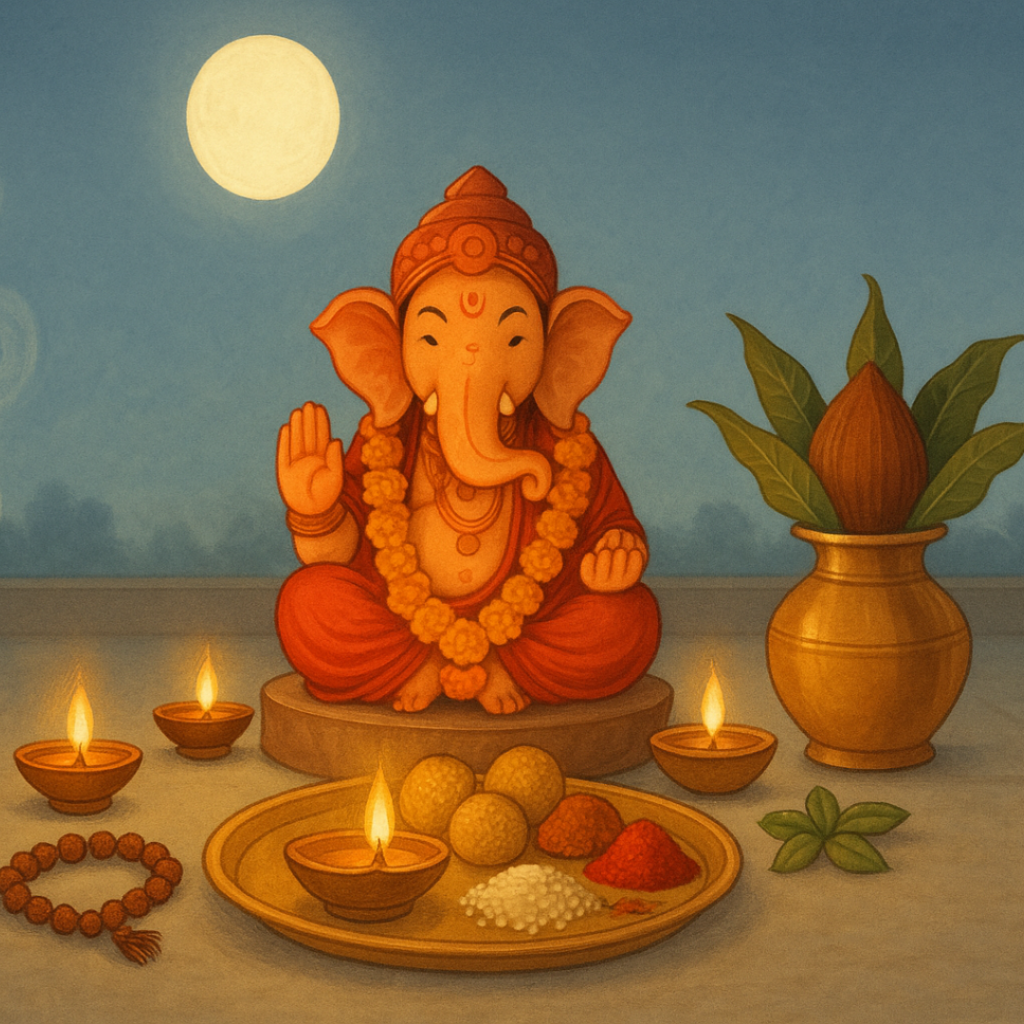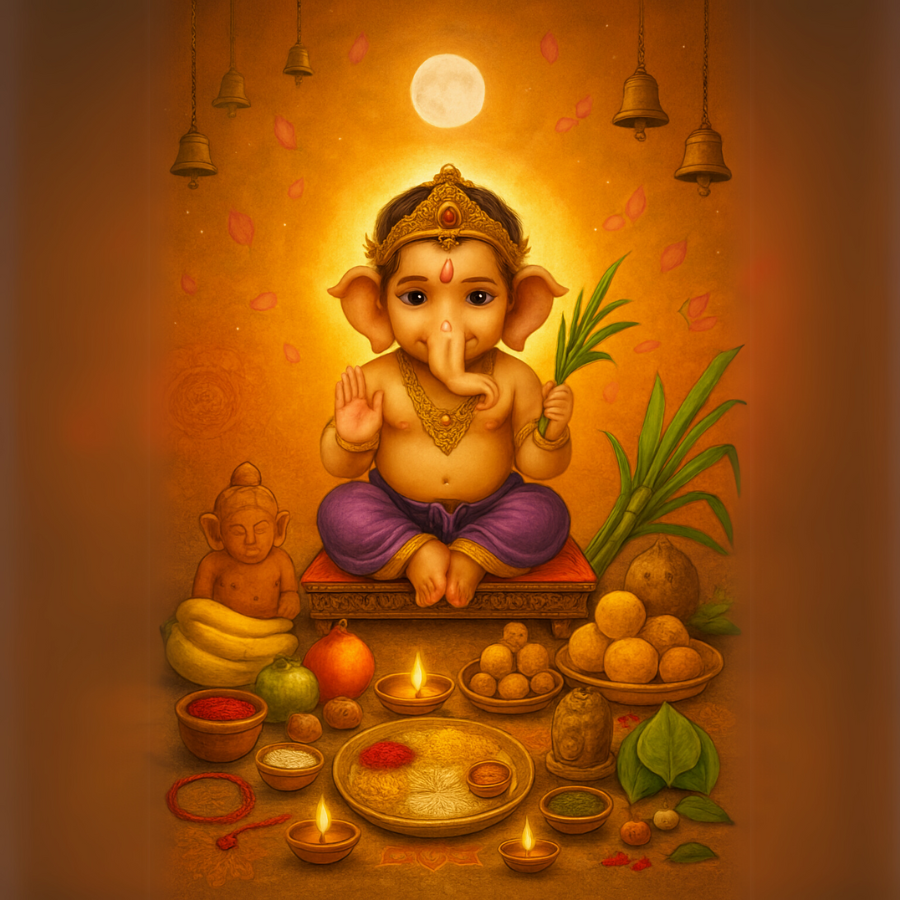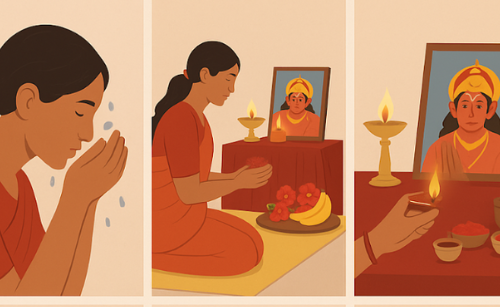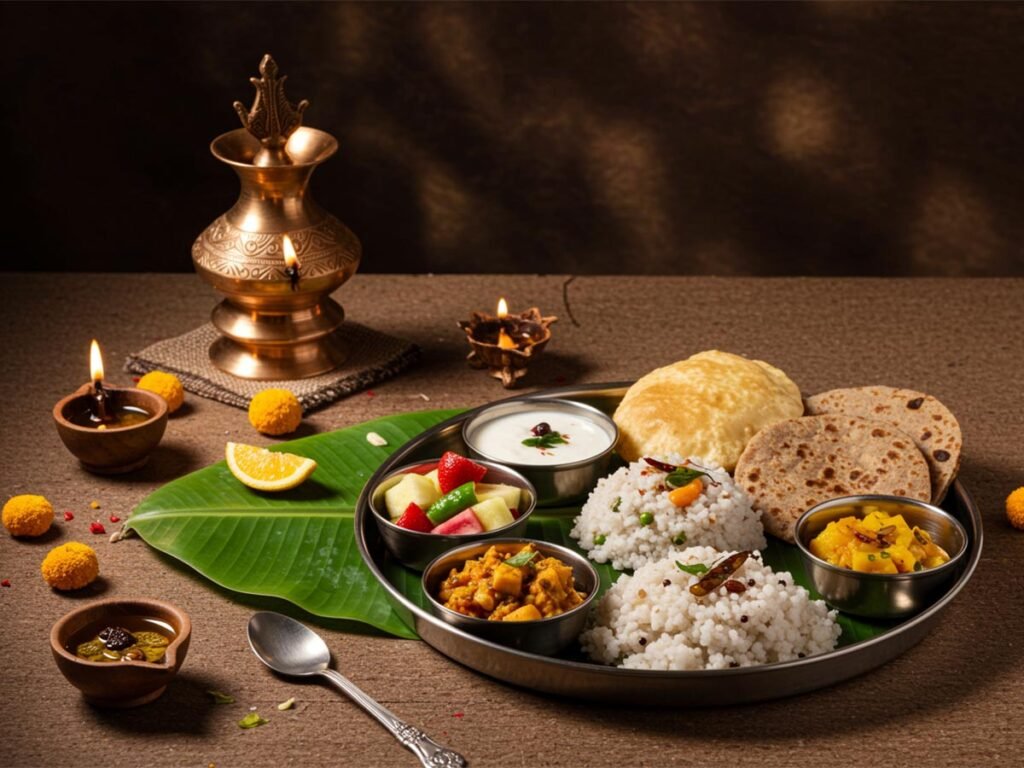

Sakat Chauth Vrat (सकट चौथ व्रत)
Sakat Chauth, also known as Sankashti Chaturthi, is a sacred Hindu fasting day dedicated to Lord Ganesha and Goddess Sakat. Observed mostly by mothers for the well-being and longevity of their children, this vrat is held on the Chaturthi tithi (4th day) of Krishna Paksha in the month of Magha (January–February).
Why Do We Celebrate Sakat Chauth?
Sakat Chauth is celebrated to seek the blessings of Lord Ganesha, the remover of obstacles, and Goddess Sakat, who protects children from misfortunes and grants good health and intelligence. The fast reflects maternal devotion and hope for divine protection of one’s child.

Sakat Chauth Vrat Katha (सकट चौथ व्रत कथा)
Long ago, in a town, lived a wealthy merchant. He had seven sons, all of whom were married. The youngest daughter-in-law was very religious, kind-hearted, and a true devotee of the gods. She used to observe fasts and perform religious rituals with full faith and devotion. On the occasion of Sakat Chauth, she decided to observe the fast and performed the puja of Lord Ganesha, as per tradition. She remained without food and water the entire day and worshipped Ganesha with great devotion, praying for the well-being of her family.
That night, when the merchant’s family sat down for dinner, she refused to eat as her fast would only conclude the next day after sighting the moon and offering Arghya (water offering). Her mother-in-law, however, was not happy with her strict fasting and forced her to eat, despite the daughter-in-law’s refusal. She said, “I cannot eat until I complete the fast as per ritual.” But the mother-in-law insisted and made her eat That very night, the youngest son—the daughter-in-law’s husband—suddenly fell seriously ill. Despite the best efforts, his condition worsened. The family was devastated and consulted many healers and astrologers, but no one could find a cure.
Finally, a wise priest came and said, “This has happened because the sanctity of Sakat Chauth fast was broken. Lord Ganesha is displeased.” He advised the daughter-in-law to sincerely observe the fast again next month and offer ‘Sankat Mochan Ganesha’ her prayers with full devotion and complete the fast properly. The following month, she fasted again with even greater faith. She followed all the rituals properly and narrated the Sakat Chauth Vrat Katha. She also gave Tilkut (a sweet made of sesame and jaggery) and other offerings in charity to Brahmins and the poor.
That night, she saw Lord Ganesha in her dream. He blessed her and said, “Your devotion has pleased me. Your husband will recover.” The next morning, her husband miraculously regained consciousness and was completely cured. From then on, the entire family began to observe the Sakat Chauth Vrat every year, especially praying to Lord Ganesha to protect their children from all dangers and to bless them with health and prosperity.
God Worshipped
Lord Ganesh
Day Observed
Chaturthi after full moon
Associated Color
Red or Yellow
God Worshipped
Lord Ganesh
Day Observed
Chaturthi after full moon
Associated Color
Red & Yellow

Sakat Chauth Pooja Kit (Pooja Items)
A clay or silver idol of Lord Ganesha
Wheat flour for making Sakat ki Roti
Jaggery and Til (Sesame seeds)
Ghee and incense sticks
Lamps (Diya)
Durva grass and betel leaves
Fruits and sweets
Red cloth for offerings
Coconut and Kalash
A sieve for moon viewing
Importance of Sakat Chauth Vrat
This vrat is deeply significant for mothers, symbolizing care, sacrifice, and blessings for their children. It is believed that those who sincerely observe this fast can eliminate life obstacles, health issues, and misfortune in their children’s lives.
Benefits of Sakat Chauth Vrat
Ensures health, wisdom, and longevity for children
Grants freedom from doshas and obstacles in family life
Fosters mental strength and devotion
Protects children from untimely troubles or ailments
Brings spiritual growth and divine blessings from Lord Ganesha

Procedure of Sakat Chauth Vrat Fast Puja
Wake up early, bathe, and wear clean traditional clothes.
Clean the pooja area and place Lord Ganesha’s idol on a red cloth.
Light diyas and incense sticks.
Offer durva grass, flowers, til, jaggery, and sweets.
Prepare Sakat ki Roti using wheat flour, jaggery, and til.
Read or listen to Sakat Chauth Vrat Katha.
Chant “Om Gan Ganapataye Namah” and offer prayers.
In the evening, view the moon through a sieve, offer water and break the fast by eating Sakat ki Roti and fruits.
Food Items Do's and Don'ts for Sakat Chauth Vrat

What to Eat on Sakat Chauth Vrat
Fruits like bananas, apples, guava
Dry fruits and nuts
Milk-based sweets (without grains)
Til and jaggery-based preparations
Sakat ki roti made without salt or grains
Sabudana (tapioca pearls) khichdi
Food Items to Avoid in Sakat Chauth Vrat
Salt and grains (especially rice and wheat)
Onion, garlic, and non-veg items
Packaged or processed foods
Alcohol, tea, coffee
Fried or oily food items (outside of til/ghee offerings)

Frequently Asked Questions
Who observes Sakat Chauth?
Mainly mothers keep this fast for the welfare and long life of their children.
Is Sakat Chauth a women-only vrat?
Though traditionally observed by women, anyone can keep it with faith.
What is the significance of viewing the moon?
The moon symbolizes the end of the vrat and is considered essential for blessings from Chandra Dev.
Can pregnant women observe this fast?
It’s best to consult a doctor and observe only if physically comfortable.
Is it compulsory to make Sakat ki Roti?
Yes, it is symbolic and part of the traditional offering during this vrat.
